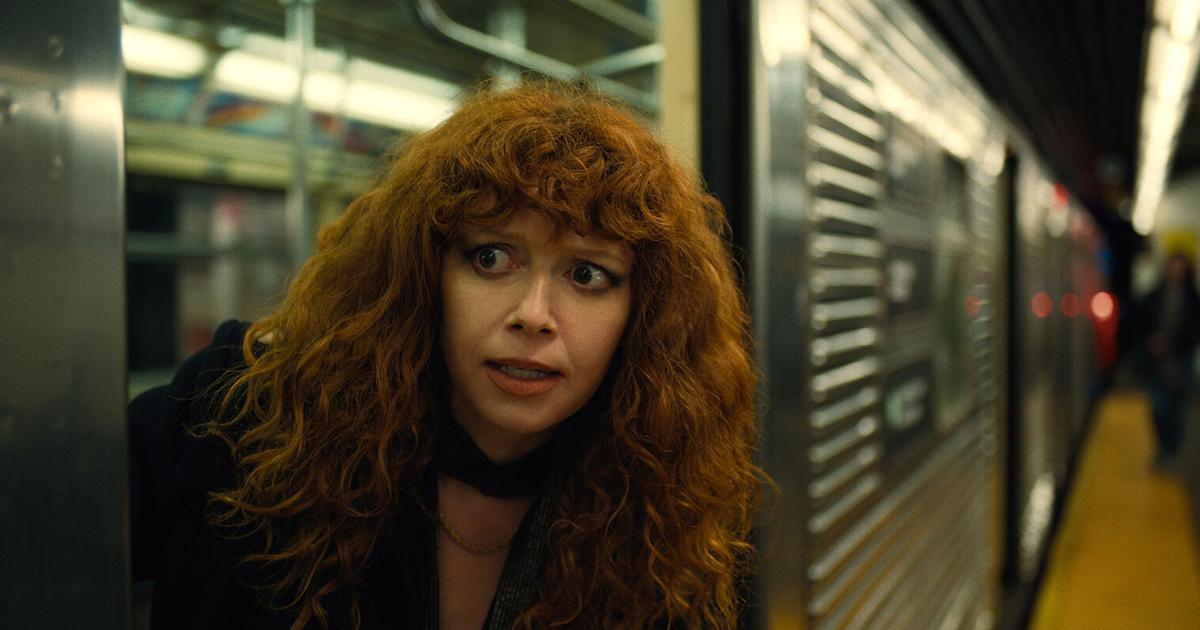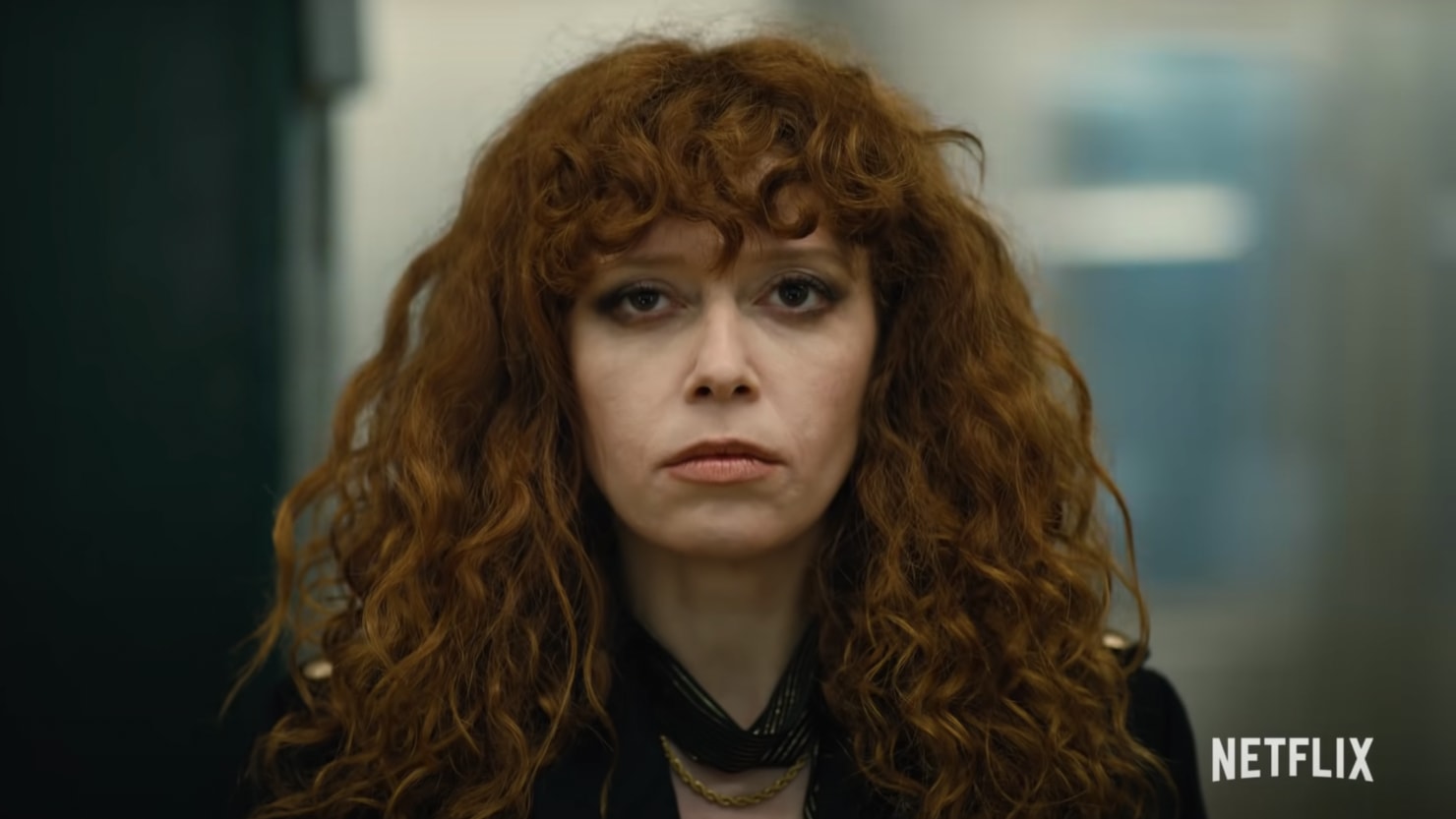Given the firmness with which it closed its circular plot and the relatively particular idiosyncrasies of its narrative – “relatively” since it ran on an engine often taken from “Groundhog Day” – it is somewhat surprising to see a second season. from “Russian Doll”. despite the excellence of its first season 2019.
In this New York fairy tale, described by Natasha Lyonne’s main character, Nadia, as “the one of the broken man and the lady with a death wish who got stuck in a loop”, Nadia and her twin scary metaphysics, Alan (Charlie Barnett), keep dying until life gets better. It’s a Borscht Belt Samsara story, with an ending so beautifully posed you wonder what more could be said.
But nothing succeeds better than a stab at another hit, and a second season is here, with Lyonne taking over as showrunner (former showrunner Leslye Headland and Amy Poehler are her co-creators), and he does the job with skill and elegance. Stylistically and philosophically consistent with its predecessor, it’s different enough not to look like a calculating retread; as before, it’s admirable in its ingenuity, a bit radical and deeply felt in a way that isn’t radical at all.
The second season, which begins 10 days before Nadia’s 40th birthday – while the first season began several times on the night of her 36 (repeat) – continues to dig deeper, focusing on a few undeveloped points from the first. season and fleshing out a backstory. (She spent the intervening birthdays on DEFCON 1, in case things got weird again.)
There’s the mental illness of Nadia’s mother, Nora, played by Chloé Sevigny; the Krugerrand that Nadia wears on a chain around her neck, the last vestige of a family heirloom and a symbol of loss; and the fact that her grandmother is a Holocaust survivor. (These are mothers, grandmothers, and children.) These scenarios reflect how the stories we inherit are often incomplete, shaped by the limits or intentions of the storyteller, and the essential activity of new season for Nadia is to fill in the gaps.
There are circles in the new season, but they are overlapping circles, arranged in four dimensions and connected by a space-time wormhole in the shape of the New York City subway train #6, which will carry Nadia and Alan here and there and then in the lives that made their life. Like most time travel tales, it involves trying to change the present by changing the past, but that’s not to say too much that what the universe wants to change is the time travelers. (“I prefer the term ‘prisoner in time,'” says Nadia.) The expanded web expands the field of investigation – as before, it’s a kind of detective story – which also expands geographically, to encompass Berlin and Budapest, Hungary. Although Netflix’s Spoiler Police has a bug about reviews mentioning the years Nadia and Alan travel to, the official trailer gives you a glimpse of a ‘Sophie’s Choice’ poster – not coincidentally, a movie about the Holocaust – a man with a mohawk and Nazis. (A perfectly unnecessary identified spoiler is the character played by Annie Murphy; that will get known soon enough, and the exciting part, anyway, is that Annie Murphy is in it.)
The (less than) half of Charlie’s story, which involves his Ghanaian grandmother and some interesting genre-wise hints, might seem a bit abbreviated, but his points are made and he’s there in the clutch . Nadia’s godmother Ruth (Elizabeth Ashley), whose years of smoking may be catching up with her, is heavily involved, with Greta Lee’s Maxine, freed from endlessly organizing Nadia’s birthday party, getting more things to do and places to go. (Nadia continues to smoke, drink, do drugs, and generally walk between fearlessness and recklessness; Alan, on the other hand, is cautious of a fault.)
There are also many smaller callbacks to the first season – Oatmeal the Cat, Alan’s Fish, the Deli, Horse the Homeless, the way Nadia pronounces ‘cockroach’ as ’cockroach’, reminiscent of reading by Zero Mostel. opening line of Franz Kafka’s “Metamorphosis” in “The Producers” – and really, you couldn’t describe the show’s gestalt any better than as the mixture of these two works, a little Franz Kafka, a little Mel Brooks. Bathrooms and bathroom mirrors, and mirrors in general, continue to play a role.
Having already been through a major reality disruption, Nadia is hard to shake – “Inexplicable things that happen are my whole modus operandi,” she says – and as if to match her resolve, the new season throws in abrupt changes of scene and even stranger dislocations of reality in its own way. While uncovered clues and chance encounters seem a bit conveniently arranged, they can also be read as the universe giving her what she needs when she needs it, like a bottle labeled “Drink me,” just when you must be small enough to pass through this small door. The cosmos may have a weird sense of humor, but they’re not mean. It’s also true that the show wastes no time — at seven episodes sitcom length more or less, it’s one episode shorter than the first season — and moves fast. You need coincidence to spin the wheels.
Armored under a cascade of curls, wrapped in a sort of military overcoat that dramatically flares out in silhouette, Nadia is a fire-starting superheroine, if she is less concerned with the fate of the world than with her own situation; his selfishness is explicitly noted, his quest to remake his past preventing him from paying attention to the present. She’s also a comedian – any other line of dialogue is a joke – much like Hamlet, weaving her way through tragedy, collaborating with ghosts, only she tends to dive forward instead of procrastinate. But there is also tenderness in her character, anger and love, and Lyonne nuances it brilliantly.
Ultimately, it’s useful to view the series, especially in the jagged transitions of its beautiful final movements, as musical or poetic. “Russian Doll” somersaults to get where it’s going, but its conclusions are emotionally unambiguous and universally helpful and in keeping with the previous season’s themes of attachment and abandonment. The show is smart without ever being too smart for its own good. And if his sentimental streak is laced with skepticism, sentiment is what makes “Russian Doll” valuable and skepticism what keeps sentiment bearable. It’s the tension between the two effects that makes relief, when it comes, so powerful.




